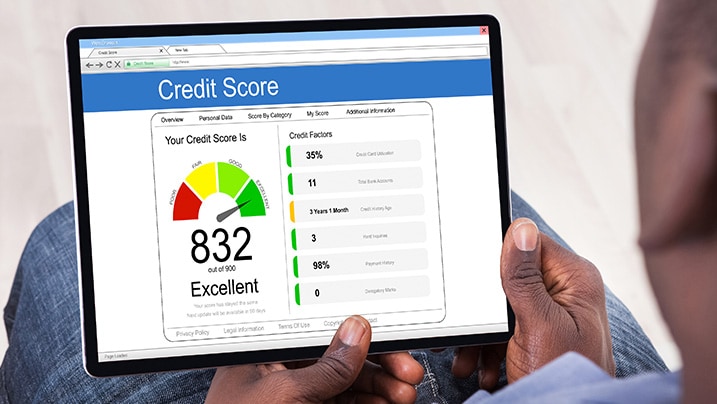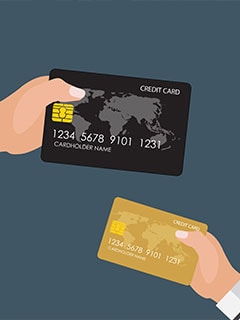CKYC Registry
-
Customer Service Contact us Service request Locate a branch
Find all the help you need
Scan the QR, get our app, and find help on your fingertips

Help CenterSupport topics, Contact us, FAQs and more
-
Login
Are you ready for an upgrade?
Login to the new experience with best features and services
-
Login
Are you ready for an upgrade?
Login to the new experience with best features and services
- Accounts
-
Deposits
IDFC FIRST Bank Deposits
View all Deposits -
Loans
IDFC FIRST Bank Loans
View all Loans - Wealth & Insure
-
Payments
IDFC FIRST Bank Payments
View all Payments -
Cards
IDFC FIRST Bank Cards
View all Cards - Blogs
- Corporate Account
-
Cash Management Services
IDFC FIRST Bank Cash Management Services
View all Cash Management Services - Supply Chain Finance
-
Corporate Lending
IDFC FIRST Bank Lending
View all -
Treasury
IDFC FIRST Bank Treasury
See more details - NBFC Financing
Support topics, Contact us, FAQs and more
- IDFC FIRST Bank Accounts
-
Savings Account
-
Corporate Salary
Account -
Senior Citizens
Savings Account -
First Power
Account -
Current Account
-
NRI Savings
Account -
TASC Institutional
Account -
Savings Account
Interest Calculator
- IDFC FIRST Bank Deposits
-
Fixed Deposit
-
Recurring Deposit
-
NRI Fixed Deposit
-
Safe Deposit Locker
-
FD Calculator
-
RD Calculator
- IDFC FIRST Bank Loans
-
Personal Loan
-
Consumer Durable
Loan -
Home Loan
-
Business Loan
-
Professional Loan
-
Education Loan
-
New Car Loan
-
Pre-owned Car Loan
-
Two Wheeler Loan
-
Pre-owned Two
Wheeler Loan -
Commercial Vehicle
Loan -
Gold Loan
-
Loan Against Property
-
Loan Against Securities
-
Easy Buy EMI card
-
Personal Loan
EMI Calculator -
Education Loan
EMI Calculator -
Home Loan
EMI Calculator -
EMI Calculator
-
Personal Loan Eligibility Calculator
- IDFC FIRST Bank Wealth & Insure
-
FIRST Select
-
FIRST Wealth
-
FIRST Private
-
Mutual Funds
-
Sovereign Gold Bond
-
Demat Account
-
Term Insurance
-
Life Insurance
-
Health Insurance
-
General Insurance
-
Bonds
-
Loan Against
Securities -
Portfolio Management
Service
- IDFC FIRST Bank Payments
-
FASTag
-
Credit Card
Bill Payments -
UPI
-
Funds Transfer
-
Forex Services
-
Pay Loan EMI
- IDFC FIRST Bank Cards
-
Ashva :
Metal Credit Card -
Mayura :
Metal Credit Card -
FIRST Millennia
Credit Card -
FIRST Classic
Credit Card -
FIRST Select
Credit Card -
FIRST Wealth
Credit Card -
FIRST WOW!
Credit Card -
Deals
-
Debit Cards
-
Co-branded Cards
-
Credit Card
EMI Calculator -
FIRST Corporate
Credit Card -
FIRST Purchase
Credit Card -
FIRST Business
Credit Card
- Premium Metal Credit Cards
-
AshvaLifestyle1% Forex₹2,999
-
MayuraLifestyleZero Forex₹5,999
-
FIRST PrivateInvite Only
- Best for travellers
-
MayuraZero ForexMetal₹5,999
-
Ashva1% ForexMetal₹2,999
-
FIRST WOW!Zero ForexTravelLifetime Free
-
FIRST SWYPTravel OffersEMI₹499
-
FIRST Select1.99% ForexLifestyleLifetime Free
-
FIRST Wealth1.5% ForexLifestyleLifetime Free
-
Club VistaraTravelLifestyle₹4,999
-
IndiGo IDFC FIRST Dual Credit CardTravelLifestyle₹4,999
- Max benefits, Free for life
-
FIRST Classic10X RewardsShoppingNever Expiring Rewards
-
FIRST Millennia10X RewardsShoppingNever Expiring Rewards
-
FIRST Select10X RewardsLifestyle1.99% Forex
-
FIRST Wealth10X RewardsLifestyle1.5% Forex
-
FIRST WOW!RewardsTravelZero Forex
-
LIC ClassicRewardsInsuranceShopping
-
LIC SelectRewardsInsuranceShopping
- Reward Multipliers
-
AshvaLifestyleMetal₹2,999
-
MayuraLifestyleZero Forex₹5,999
-
FIRST ClassicNever Expiring RewardsShoppingLifetime Free
-
FIRST MillenniaNever Expiring RewardsShoppingLifetime Free
-
FIRST SelectNever Expiring RewardsLifestyleLifetime Free
-
FIRST WealthNever Expiring RewardsLifestyleLifetime Free
- Rewards & Credit on UPI
-
FIRST Power+FuelUPI₹499
-
FIRST PowerFuelUPI₹199
-
FIRST EA₹NVirtual1% Cashback₹499
-
FIRST DigitalVirtualUPI₹199
-
IndiGo IDFC FIRST Dual Credit CardUPITravelDual cards
- Fuel and Savings
-
FIRST PowerRewardsUPI₹199
-
FIRST Power+RewardsUPI₹499
-
LIC ClassicRewardsInsuranceShopping
-
LIC SelectRewardsInsuranceShopping
- Express and Flaunt
-
AshvaMetal1% Forex₹2,999
-
MayuraMetalZero Forex₹5,999
-
FIRST SWYPEMIOfferMAX₹499
-
FIRST MillenniaRewardsShoppingLifetime Free
- FD Backed rewarding Credit Cards for all
-
FIRST EA₹NVirtualCashback₹499
-
FIRST WOW!Zero ForexTravelLifetime Free
-
CreditPro Balance TransferTransfer & SaveReduce InterestPay Smartly
- IDFC FIRST Bank NRI Forex Solutions
-
Send money to India-Wire transfer
-
Send money to India-Digitally
-
Send money abroad
-
Max Returns FD (INR)
- IDFC FIRST Bank MSME Accounts
-
Platinum Current
Account -
Gold
Current Account -
Silver Plus
Current Account -
Merchant Multiplier
Account -
Agri Multiplier
Account -
TASC Institutional
Account -
Dynamic Current
Account -
World business
Account -
First Startup
Current Account
- IDFC FIRST Bank Business Loans
-
Business Loan
-
Professional Loan
-
Loan Against Property
-
Business Loan for Women
-
Working Capital Loan
-
Construction Equipment Loan
-
Machinery Loan
-
Healthcare Equipment Loan
- IDFC FIRST Bank Business Solutions
-
Payment Solutions
-
Tax Payments
-
Doorstep Banking
-
Point of Sale (POS)
-
Escrow Accounts
-
NACH
-
Payment Gateway
-
UPI
-
Virtual Accounts
-
As per amendment in the Income Tax Rules, PAN or Aadhaar are to be mandatorily quoted for cash deposit or withdrawal aggregating to Rupees twenty lakhs or more in a FY. Please update your PAN or Aadhaar. Kindly reach out to the Bank’s contact center on 1800 10 888 or visit the nearest IDFC FIRST Bank branch for further queries.
-
-
Most Searched
Sorry!
We couldn’t find ‘’ in our website
Here is what you can do :
- Try checking the spelling and search
- Search from below suggestions instead
- Widen your search & try a more generic keyword
Suggested
Get a Credit Card
Enjoy Zero Charges on All Commonly Used Savings Account Services
Open Account Now
Credit Card
How to calculate CIBIL score and contributing factors of it
Key Takeaways
Key components influencing your credit score include credit history, repayment track record, and credit mix.
Maintaining a CIBIL score above 750 is ideal for securing loans and credit cards at favourable terms.
IDFC FIRST Bank's FIRST WOW! credit card can help you manage credit efficiently, potentially boosting your CIBIL Score through responsible usage.
Your CIBIL score is more than just a number, it displays your financial health and creditworthiness. This three-digit score, ranging from 300 to 900, plays a crucial role in determining your eligibility for loans and credit cards. A higher score signifies responsible credit behaviour, making you a preferred customer for the banks and financial institutions. Factors like timely repayments, credit utilisation, and credit history directly impact this score, influencing your financial future. Let’s understand how the CIBIL score is calculated and what influence it holds on your loan application and approvals.
What is a CIBIL score?
A CIBIL/Credit score is a three-digit numerical representation of your creditworthiness, generated by credit unions. The score ranges between 300 and 900, with a higher score indicating stronger credit health. Banks and financial institutions use this score to assess the risk of extending credit to you. It is influenced by various factors, including your repayment history, credit mix, and the length of your credit history.
Four major credit bureaus calculate credit scores in India -
- TransUnion CIBIL
- Equifax
- Experian
- CRIF Highmark
Since the credit scores released by CIBIL are the most common, credit score is also referred to as a person's CIBIL score. It is a three-digit number that ranges between 300 and 900.
CIBIL Score components
Your CIBIL Score is determined by several components, each contributing to your overall creditworthiness:
1. Repayment history: This is the most significant factor. A consistent record of timely repayments on loans and credit cards positively impacts your score. Late payments, defaults, or settlements can significantly lower your score, reflecting negatively on your financial responsibility.
2. Credit utilisation ratio: This ratio measures the percentage of your available credit limit that you are currently using. A lower credit utilisation ratio indicates that you are not overly reliant on credit, which is favourable for your score. For example, if your credit card limit is ₹1 lakh, it’s advisable to use only up to ₹30,000 to maintain a healthy score.
3. Length of credit history: The longer your credit history, the better. A lengthy credit history provides more data on your repayment behaviour, making it easier for lenders to predict future behaviour. It also means that you have had more experience managing credit over time.
4. Credit mix: A diverse mix of credit types, such as home loans, personal loans, and credit cards, can improve your score. It shows that you can manage different types of credit responsibly. However, having too much unsecured credit, like personal loans, can negatively impact your score.
5. New credit inquiries: Every time you apply for credit, lenders perform a hard inquiry on your credit report, which can slightly lower your score. Multiple inquiries in a short period suggest a higher credit risk, thus lowering your score.
How is your CIBIL score calculated?
Your CIBIL score is calculated using an algorithm that analyses various data points from your credit report. Each component mentioned above is weighted differently, contributing to the overall score.
The CIBIL calculation considers your repayment history, which forms 35% of the score. If you have consistently paid your EMIs and credit card bills on time, you will likely have a higher score. Next, it looks at your credit utilisation ratio. A lower ratio (ideally below 30%) is seen as positive, contributing to 30% of your score. The length of your credit history is then evaluated; longer histories positively influence 15% of your score. The diversity in your credit accounts (credit mix) adds another 10%, reflecting your ability to manage various types of credit. Finally, new credit inquiries contribute 10% to your score, with frequent inquiries potentially reducing it.
It’s important to note that this calculation is dynamic, your score can change based on your credit behaviour. Using credit cards like the IDFC FIRST Bank FIRST SWYP EMI credit card responsibly can help improve your score over time. The card comes with fixed monthly conversion fee and no interest charges, on eligible merchants and purchases. Thus making it easier for you to convert your expenses into EMIs. You also get to enjoy several discounts on shopping and travel expenses and attractive reward program on incremental spending that you should never miss on.
Factors that affect CIBIL score
- Credit history: Late payments or defaults significantly reduce your CIBIL score. Consistently paying EMIs and credit card bills on time is crucial.
- Credit diversification: A balanced mix of secured (home loan) and unsecured (credit card) credit is beneficial. A high volume of unsecured credit can lower your score.
- Credit utilisation ratio: Using more than 30% of your credit limit can negatively impact your score. Maintaining a lower utilisation ratio is advisable.
- Credit profile: A longer credit history is advantageous as it gives lenders more information to assess your creditworthiness.
- New credit inquiries: Frequent credit inquiries within a short period can indicate financial stress, thereby lowering your score.
What is an ideal CIBIL score you should maintain?
An ideal CIBIL score to maintain is 750 or above. This score range is considered excellent by most lenders, enhancing your chances of securing loans and credit cards with favourable terms and interest rates. A high score reflects strong credit management, making you a low-risk borrower in the eyes of lenders.
CIBIL score range
CIBIL scores range between 300 and 900, with specific ranges signifying different levels of creditworthiness:
- 300-549: Poor – This range indicates a high risk of default.
- 550-649: Fair – Improvement is needed to access better loan options.
- 650-749: Good – This range is acceptable, but there’s room for improvement.
- 750-900: Excellent – A score in this range ensures easy access to loans and credit cards with attractive terms.
CIBIL score calculation for home loan & personal loan
When calculating eligibility for a home or personal loan, banks prefer applicants with a CIBIL score of 750 or above. For home loans, the score is crucial, as it helps lenders assess your ability to manage long-term debt. A higher score often results in better interest rates. For personal loans which are unsecured, a strong score becomes even more critical, as it assures lenders of your creditworthiness.
Lenders, including IDFC FIRST Bank, check an individual's creditworthiness before accepting their home loan request to assert borrowers’ creditworthiness. Follow the seven simple steps mentioned below to check your CIBIL score before applying for a home loan.
- Visit https://www.cibil.com/freecibilscore.
- Click on the 'Get your free CIBIL score' tab.
- Enter the required information as requested on the next page and click 'Accept & Continue.'
- Enter the OTP received on your registered mobile number and click on 'Continue'.
- You have now enrolled on the CIBIL website. Now, click on 'Go to dashboard'.
- Once you land on the homepage, click on 'Member login' to log in to the account that you just created.
- After logging in, the site will display your CIBIL score.
Smart tips to improve your CIBIL score
- Pay your bills on time: Timely repayment of credit card bills and EMIs significantly boosts your CIBIL Score. Set reminders or use auto-debit facilities to avoid missing due dates.
- Maintain a low credit utilisation ratio: Keep your credit utilisation below 30% of your available limit. If your limit is ₹1 lakh, try not to use more than ₹30,000.
- Avoid multiple loan applications: Each loan application results in a hard inquiry on your credit report, which can lower your score. Space out your credit inquiries to avoid a negative impact.
- Secured credit cards: Most credit cards require having a good credit score. However, if you don’t have a credit score, consider opting for a secured credit card like the IDFC FIRST Bank FIRSTearn virtual credit card to start building it. Secured credit cards are issued against fixed deposits as collateral with a minimum credit limit of 100% of FD value. As such, they do not require credit scores to qualify for them. Over time, with timely payment and responsible use, you can build a good credit profile to take advantage of better loan rates and premium credit products in the future.
- Monitor your credit report: Regularly check your credit report for errors or discrepancies that could be affecting your score. If you find any, report them immediately for correction.
- Use credit wisely: Ensure that you use your card and loans responsibly, paying off the full balance each month to avoid interest charges and boost your score.
- Co-sign cautiously: If any of the co-signers/joint accountholders default on their payment on the loan, your score will suffer too. Exercise caution and only co-sign for people you fully trust.
Conclusion
Your CIBIL score significantly impacts your financial journey, influencing access to loans and credit card approvals. Managing your credit responsibly with actions like paying bills on time, maintaining a low credit utilisation, and diversifying your credit profile can steadily build a strong score. Cards like IDFC FIRST Bank's FIRST SWYP and FIRSTearn can assist in managing your credit effectively, offering a reliable way to establish and boost your CIBIL score. Additionally, the offers and rewards IDFC FIRST Bank credit cards provide are something that you must always grab on to maximise your benefits.
Disclaimer
The contents of this article/infographic/picture/video are meant solely for information purposes. The contents are generic in nature and for informational purposes only. It is not a substitute for specific advice in your own circumstances. The information is subject to updation, completion, revision, verification and amendment and the same may change materially. The information is not intended for distribution or use by any person in any jurisdiction where such distribution or use would be contrary to law or regulation or would subject IDFC FIRST Bank or its affiliates to any licensing or registration requirements. IDFC FIRST Bank shall not be responsible for any direct/indirect loss or liability incurred by the reader for taking any financial decisions based on the contents and information mentioned. Please consult your financial advisor before making any financial decision.
The features, benefits and offers mentioned in the article are applicable as on the day of publication of this blog and is subject to change without notice. The contents herein are also subject to other product specific terms and conditions and any third party terms and conditions, as applicable. Please refer our website www.idfcfirstbank.com for latest updates.























